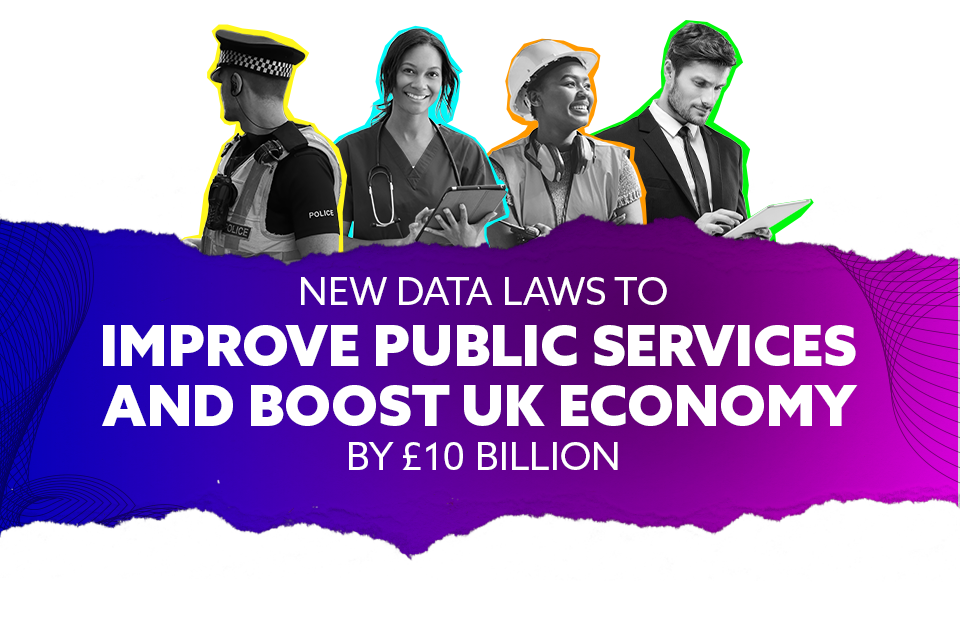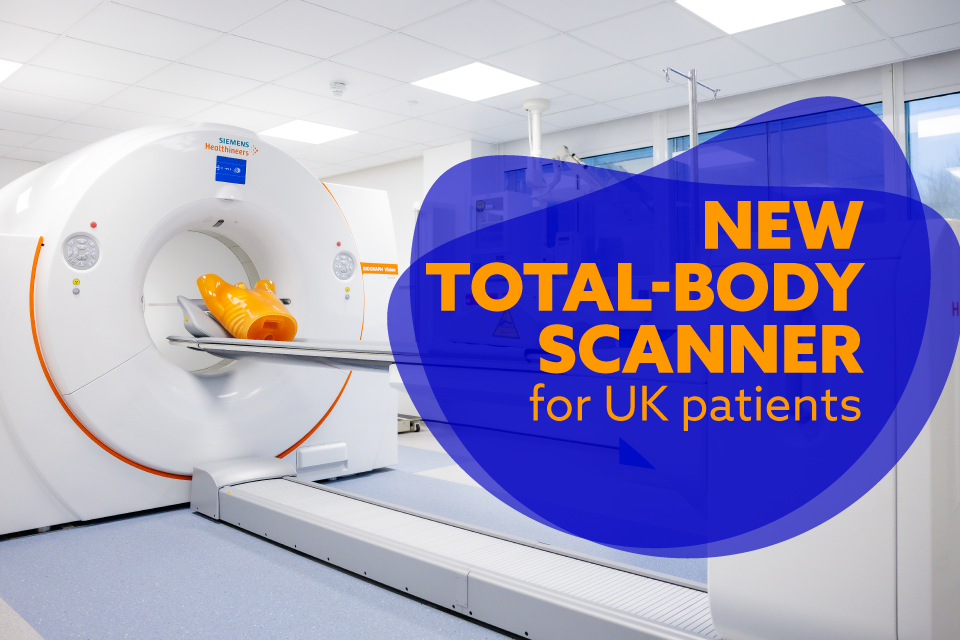- New government Bill will unlock the power of data to grow the economy and improve people’s lives
- Measures will free up 1.5 million hours of police time and 140,000 NHS staff hours every year, potentially saving lives
- The legislation will also support the creation of a national map of the UK’s underground infrastructure, reducing excavation accidents causing traffic jams and safety hazards on our streets
A new Bill which will harness the enormous power of data to boost the UK economy by £10 billion, and free up millions of police and NHS staff hours has been introduced to Parliament today (Wednesday 23rd October).
The Data Use and Access Bill will unlock the secure and effective use of data for the public interest, without adding pressures to the country’s finances. The measures will be central to delivering three of the five Missions to rebuild Britain, set out by the Prime Minister
- kickstarting economic growth
- taking back our streets
- and building an NHS fit for the future
Some of its key measures include cutting down on bureaucracy for our police officers, so that they can focus on tackling crime rather than being bogged down by admin, freeing up 1.5 million hours of their time a year. It will also make patients’ data easily transferable across the NHS so that frontline staff can make better informed decisions for patients more quickly, freeing up 140,000 hours of NHS staff time every year, speeding up care and improving patients’ health outcomes.
The better use of data under measures in the Bill will also simplify important tasks such as renting a flat and starting work with trusted ways to verify your identity online, or enabling electronic registration of births and deaths, so that people and businesses can get on with their lives without unnecessary admin.
Vital safeguards will remain in place to track and monitor how personal data is used, giving peace of mind to patients and victims of crime. IT systems in the NHS operate to the highest standards of security and all organisations have governance arrangements in place to ensure the safe, legal storage and use of data.
Technology Secretary Peter Kyle said
Data is the DNA of modern life and quietly drives every aspect of our society and economy without us even noticing – from our NHS treatments and social interactions to our business and banking transactions.
It has the enormous potential to make our lives better, boosting our National Health Service, cutting costs when we shop, and saving us valuable time.
With laws that help us to use data securely and effectively, this Bill will help us boost the UK’s economy, free up vital time for our front-line workers, and relieve people from unnecessary admin so that they can get on with their lives.
The Bill, delivered by the Department for Science, Innovation, and Technology, has three core objectives growing the economy, improving UK public services, and making people’s lives easier. The measures will be underpinned by a revamped Information Commissioner’s Office, the UK’s independent authority responsible for regulating data protection and privacy laws, with a new structure and powers of enforcement – ensuring people’s personal data will be protected to high standards.
Improving public services
The Bill will unlock the power of data to relieve front-line workers in the NHS and police forces across the country from bureaucracy and enable them to better serve the public.
Police officers across the country will benefit from measures that will remove unnecessary manual logging requirements whenever accessing personal data to work on a case, for example every time an officer needs to look up a suspect or person of interest on the police database, freeing up to 1.5 million hours of valuable police time for our officers, so that they can be on the streets fighting crime rather than being bogged down by admin. This will help save around £42.8 million in taxpayers’ money every year.
The legislation will also ensure that healthcare information – like a patient’s pre-existing conditions, appointments and tests – can easily be accessed in real time across all NHS trusts, GP surgeries and ambulance services, no matter what IT system they are using. It will require IT suppliers for the health and care sector to ensure their systems meet common standards to enable data sharing across platforms. The measure will free up 140,000 hours in NHS staff time every year, providing quicker care for patients and potentially saving lives.
Health and Social Care Secretary Wes Streeting said
The NHS is broken, but imagine its enormous potential if each part of the system communicated properly with each other.
That starts with sharing vital medical records between healthcare providers, because it shouldn’t be the patient’s responsibility to join the dots for their doctor.
How can a GP diagnose a problem without knowing about someone’s recent hospital surgery?
This Bill and our Ten Year Health Plan will ensure important data flows safely and securely through the NHS, freeing up staff time and speeding up patient care.
I know people worry about Big Brother, which is why data will only be shared to the most relevant staff and anybody using data must comply with strict security protocols.
Minister for Crime, Policing and Fire, Dame Diana Johnson said
It is vital police officers are able to dedicate their time to protecting the public on the beat, not in the office.
Freeing up this valuable resource will see more officers out on our streets, making a real difference in fighting and solving crime.
As part of our mission to make streets safer, this government will bring back neighbourhood policing, ensuring thousands of additional police and community officers are out patrolling our towns and communities.
Vin Diwakar, National Director of Transformation at NHS England, said
This Bill is a significant step in creating a more responsive and efficient healthcare system. As an NHS doctor myself, I know it is vital that NHS staff have quicker access to more accurate and comprehensive data, giving them more face-to-face time with patients who need it most.
These changes will lay the foundations for patient information to flow safely, securely and seamlessly, which will improve clinical outcomes, make decision-making more informed and speed up the delivery of care. By simply using data more efficiently, we can save time and money, and create a modern, digital NHS that continues to improve care for patients.
Growing the economy
The Bill is expected to generate approximately £10 billion towards the UK economy across ten years by legislating on data sharing to generate a host of benefits for both consumers and businesses.
Delivering on a key government manifesto commitment, the Bill will create the right conditions to support the future of open banking and the growth of new smart data schemes, models which allow consumers and businesses who want to safely share information about them with regulated and authorised third parties, to generate personalised market comparisons and financial advice to cut costs.
This will pave the way for the model to expand in sectors such as energy, which could give customers the ability to compare utility prices, find better deals, and reduce their energy use, as well as foster tech innovation and boost competition, which will ultimately grow the UK economy. This potential has already been demonstrated in open banking, where 82 firms alone have raised over £2 billion of private funding and created over 4,800 skilled jobs in the financial year 2022-2023.
The Bill will also help reduce the risk of accidents on underground water and energy pipes and broadband cables, which currently amount to 60,000 every year and cause prolonged disruption of roadworks and access to key amenities like energy and broadband to homes.
The National Underground Asset Register (NUAR) will be put on a statutory footing, mandating that owners of underground infrastructure, such as water companies or telecoms operators, register their assets on the NUAR, which is a complete map of underground pipes and cables.
The use of the Register will mean that companies will know exactly where any underground asset is placed, reducing the risk of accidents on pipes and cables, making construction safer for workers and reducing the disruption – and hazards – caused by holes being dug up in the streets. This will generate approximately £400 million a year, boost construction and tackle accidental damage currently costing the economy £2.4 billion a year.
Davey Stobbart, Water Networks Regional Manager, Northumbrian Water
Our field crews have found the way information is presented in NUAR to be more useful than anything they have seen or used before. It has reduced the time taken for crews to understand what lies below the ground where they are about to dig.
In the field, we frequently find the precise point of excavation needs to be made not-quite where our office-based planners predicted and previously in this case the job would have been delayed whilst a new plan pack was prepared. Now with NUAR, our crews are simply able to pan and zoom to that point instantly, seeing everything they would have seen on all those individual plans without the back-office cottage industry and without these delays. In fact, they will be seeing more because we’re now able to easily access information from local authorities through NUAR too, such as street lighting, highways gulleys and tree preservation orders all in one place.
We have found NUAR to be a great additional tool in the toolbox to help us reduce the likelihood of high potential utility strikes.
Making people’s lives easier
The rules proposed in the Bill will make Britons’ day-to-day lives easier, by simplifying important tasks such as renting a flat, starting work, or registering births and deaths, so that people and businesses can get on with their lives rather than being bogged down by admin.
The Bill will legislate on digital verification services, meaning companies who provide tools for verifying identities will be able to get certified against the government’s stringent trust framework of standards, and receive a ‘trust mark’ to use as a result. As well as increasing trust in the market, these efficiency gains will boost the UK economy by £4.3 billion over the next decade.
The trust mark will be a new logo to show digital verification services are approved by the new Office for Digital Identities and Attributes (OfDIA) within Department for Science, Innovation and Technology (DSIT).
The Bill will help make sure digital verification services are inclusive, secure and privacy-preserving, and will make it easier for people to know which services they can trust.
The Data Bill will pave the way towards modernising the registration of deaths in England and Wales from a paper-based system to an electronic birth and death register – in turn supporting people at one of the most challenging times in life. The new law will enable registrations, which are required by local authorities, to be carried out over the phone, removing the need for face-to-face registration while retaining that choice.
Access to data for research into online safety
The Bill will also boost the UK’s approach to tackling online harms through a power to create a researcher data access regime.
This will support researchers in accessing data held by online platforms so they can conduct robust and independent research into online safety trends. The move will boost transparency and evidence on the scale of online harms and the measures which are effective in tackling them.
Further details on the specific measures can be found below







